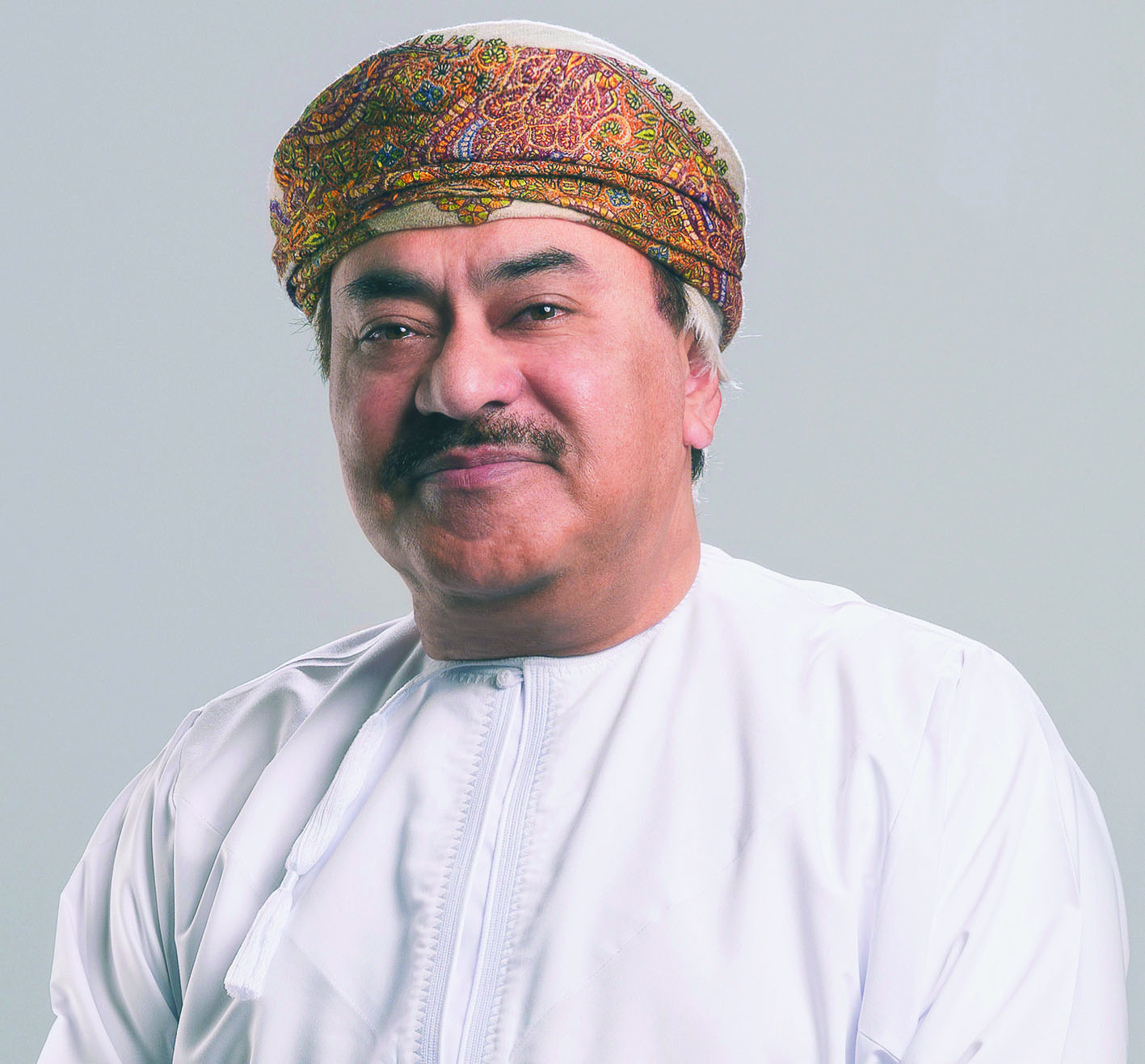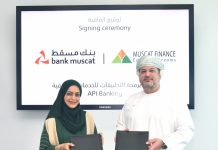Abdul Razak Ali Issa, Chief Executive, Bank Muscat shares his thoughts on the bank’s performance and future plans. An OER report.
How did Bank Muscat fare financially in 2017?
Bank Muscat posted a net profit of RO176.82mn for the year ended December 31, 2017 compared to RO176.56mn reported during the same period in 2016, an increase of 0.1 per cent. Net interest income from conventional banking and income from Islamic Financing stood at RO281.34mn for the year 2017 compared to RO274.15mn for the same period in 2016, an increase of 2.6 per cent. Net loans and advances, including Islamic financing receivables, increased by 4.7 per cent to RO8,329mn as against RO7,957mn as at December 31, 2016. The basic earnings per share was RO0.064 in 2017 and 2016.
What were the major milestones during the year? Can you talk about the measures to enhance retailing, ATM and CDM networks of the bank?
The key business lines of the bank recorded healthy performance during 2017. The bank witnessed further strategic progress, focusing on steps for future development and expansion. During the year, the Bank was a major lender to projects in the oil and gas, petrochemical and power sectors.
Aimed at enhancing the capital base for supporting business growth and improving return on equity, the bank successfully closed an Additional Equity Tier (AET) 1 capital transaction amounting to RO130mn on a private placement basis, raising the capital adequacy ratio of the bank by 1.4 per cent.
The bank successfully signed a term loan facility of $525mn with a consortium of 12 relationship banks. The transaction received overwhelming response and was subscribed 1.5 times.
The bank signed an agreement with Majid Al Futtaim Properties as exclusive finance facility provider to develop the Mall of Oman project, set to open in 2020 as the largest shopping mall in Oman.
Izdihar Real Estate Fund (Izdihar), managed by the bank, acquired a prime property in the Wilayat of Buraimi. The Buraimi Mall is the only mall of its kind in Buraimi offering a contemporary shopping experience.
The bank continued to provide an unrivalled experience to personal banking customers with the right mix of traditional and electronic channels. The bank launched bm Wallet, Oman’s first mobile wallet, reiterating the strong lead in rolling out electronic payment facility as part of the country’s e-Government initiative.
The first-of-its-kind asset management services, particularly global mutual funds, for retail banking customers were launched in association with leading global wealth management service providers. The bank implemented cheque deposit automated solution on the network of cash and cheque deposit machines (CCDM) offering 24/7 cheque deposit facility, during or after banking hours.
How was your retail and corporate lending during the year?
Net Loans and advances, including Islamic financing receivables, increased by 4.7 per cent to RO8,329mn as against RO7,957mn as at December 31, 2016.
What about the measures taken to support SMEs?
The main objective of the SME strategy is to play an important role in filling the gaps and empowering entrepreneurs to chart successful business ventures by providing necessary training, guidelines and tools. As part of initiatives to train entrepreneurs, the bank’s al Wathbah Academy marked graduation of new batches from Muscat region and started two new batches in Sohar and Nizwa. The bank pursues a well-defined strategy to support the SME sector and strengthen its role in the economic development of Oman.
Tourism is an integral part of the country’s economy and in this light the bank seeks to invest in local communities for sustainable development. In a bid to promote diversification of the economy, the bank, in association with the Ministry of Tourism, has committed to support local communities for business start-ups in areas with touristic landmarks, thereby creating sustainable sources of income for rural communities.
In line with the Sultanate’s strategy to adapt and mitigate the effects of climate change, the bank hosted awareness workshops for SMEs to promote renewable sources of energy.
How was the performance of the bank’s Islamic banking window during the year?
Meethaq Islamic Banking recorded many achievements contributing to the growth and development of the Sultanate’s economy and maintained its leading position in the Islamic banking industry in Oman. Meethaq successfully launched the first Sukuk programme in Oman amounting to RO44.7mn. Aimed at linking all important stakeholders in the SME sector, Meethaq launched Accelerate SME portal, which reflects its commitment to fostering national talent.
Meethaq signed an agreement as financial advisor of ‘Little India’ project, a landmark residential and tourism complex coming up at Duqm with an investment of RO288mn.
Supporting food security initiatives for Oman and the Arab nations, Meethaq signed an agreement to provide over RO30mn Islamic project finance for Osool Poultry project promoted by multi-lateral organisations in Al Wusta region. Meethaq also signed an agreement with A’Saffa Foods to provide RO31.5mn finance for expansion plans to make it the largest fully-integrated poultry project in the Sultanate.
What were the major HR and Omanisation initiatives taken by Bank Muscat?
With outstanding leadership at all levels, Bank Muscat achieved 94.57 per cent Omanisation, giving priority for Omanis to occupy key positions. The bank’s human resources strategy is notable in maintaining gender diversity as 48 per cent of employees are women holding various positions, including senior management positions. Of the total 3,719 employees, the number of women employees presently stands at 1738.
The development of human resources is a priority in the bank, providing relevant educational and training opportunities to employees. The training and development programmes are carried out through specialised courses conducted by accredited training centers or through academic links with colleges, universities and leading training institutes at the regional and global levels. The Jadara Talent Management programme serves as the platform for all training and development programmes in the bank.
What are your future plans to enhance operational efficiency?
Oman’s economy is expected to grow by three per cent in 2018, driven by oil price recovery and efforts to diversify the economy and improve investment climate, according to the 2018 budget statement issued by the Ministry of Finance. The bank has heralded a new era with the launch of its dynamic vision ‘To Serve You Better, Everyday’. The new vision reflects the momentum for the next phase of development by offering simplified and integrated banking solutions. The bank’s values also have been redefined and simplified to be more specific and clear in line with the requirements of the next phase. The new vision positions the bank to move forward in line with the developments in the financial sector, highlighting customer-centric priorities and enhancing efficiency and productivity.
Please share your views on the outlook for 2018?
On the economic front, optimism prevails as the government expects the economy to grow by three per cent in 2018. The 2018 budget provides the needed stimulus for economic development with the deficit of RO3bn estimated at 10 per cent of the GDP. Optimism prevails on revenue enhancement as oil production cut by OPEC and non-OPEC countries is expected to continue till the end of 2018.
The dynamic ‘To serve you better, everyday’ vision reflects the readiness to face future challenges and sums up the bank’s confidence and determination to stretch the boundaries in banking excellence. The bank’s focus for the coming year will be to maintain performance momentum.






